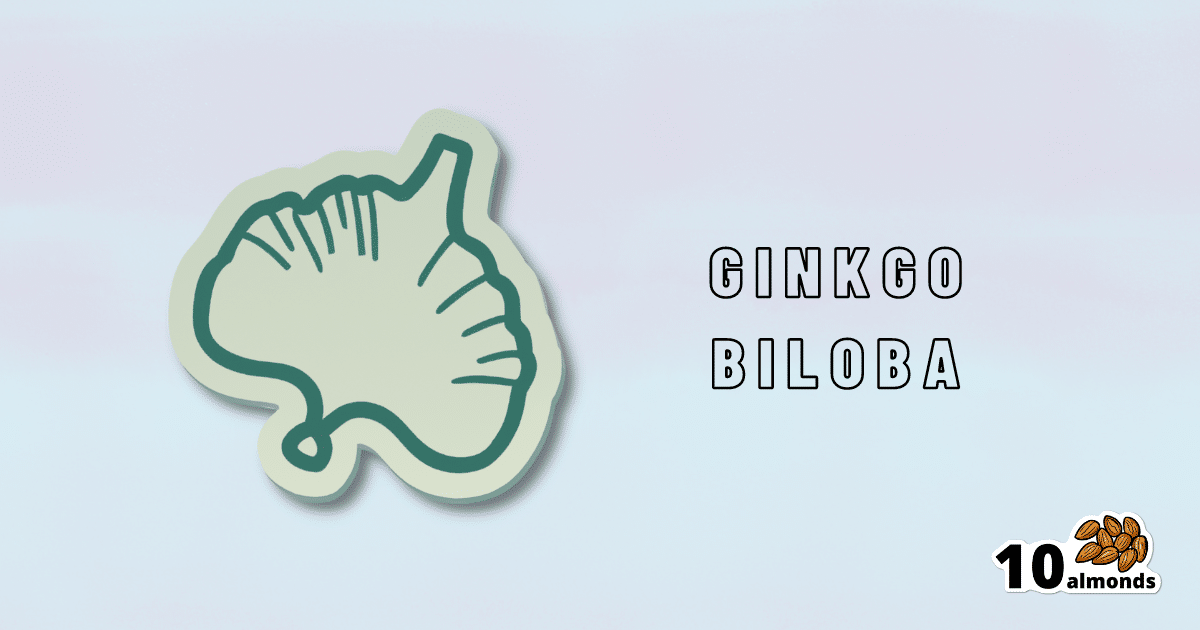Ginkgo Biloba, For Memory And, Uh, What Else Again?
Discover the science behind Ginkgo biloba’s antioxidant, anti-inflammatory, and potential cognitive enhancement effects in this informative article.

Ginkgo biloba, for memory and, uh, what else again?
Ginkgo biloba extract has enjoyed use for thousands of years for an assortment of uses, and has made its way from Traditional Chinese Medicine, to the world supplement market at large. See:
Ginkgo biloba: A Treasure of Functional Phytochemicals with Multimedicinal Applications
But what does the science say about the specific claims?
Antioxidant & anti-inflammatory
We’re going to lump these two qualities together for examination, since one invariably leads to the other.
A quick note: things that have antioxidant and anti-inflammatory properties, often also help guard against cancer and aging. However, in this case, there are few good studies pertaining to anti-aging, and none that we could find pertaining to anti-cancer potential.
So, does it have antioxidant and anti-inflammatory properties, first?
Yes, it has potent antioxidants that do fight inflammation; this is clear, from an abundance of in vitro and in vivo studies, including with human patients:
- Properties of Ginkgo biloba L.: incl. Antioxidant Characterization
- Anti-inflammatory effects of Ginkgo biloba extract against hippocampal neuronal injury
- Gingko biloba-derived lactone prevents osteoarthritis by activating anti-inflammatory signaling pathway
- The anti-inflammatory properties of Ginkgo biloba for the treatment of pulmonary diseases
In short: it helps, and there’s plenty of science for it.
What about anti-aging effects?
For this, there is science, but a lot of the science is not great. As one team of researchers concluded while doing a research review of their own:
❝Based on the reviewed information regarding EGb’s effects in vitro and in vivo, most have reported very positive outcomes with strong statistical analyses, indicating that EGb must have some sort of beneficial effect.
However, information from the reported clinical trials involving EGb are hardly conclusive since many do not include information such as the participant’s age and physical condition, drug doses administered, duration of drug administered as well as suitable control groups for comparison.
We therefore call on clinicians and clinician-scientists to establish a set of standard and reliable standard operating procedure for future clinical studies to properly evaluate EGb’s effects in the healthy and diseased person since it is highly possible it possesses beneficial effects.❞
Translation from sciencese: “These results are great, but come on, please, we are begging you to use more robust methodology”
If you’d like to read the review in question, here it is:
Advances in the Studies of Ginkgo Biloba Leaves Extract on Aging-Related Diseases
Does it have cognitive enhancement effects?
The claims here are generally that it helps:
- improve memory
- improve focus
- reduce cognitive decline
- reduce anxiety and depression
Let’s break these down:
Does it improve memory and cognition?
Ginkgo biloba was quite popular for memory 20+ years ago, and perhaps had an uptick in popularity in the wake of the 1999 movie “Analyze This” in which the protagonist psychiatrist mentions taking ginkgo biloba, because “it helps my memory, and I forget what else”.
Here are a couple of studies from not long after that:
- A double-blind, placebo-controlled, randomized trial of Ginkgo biloba in cognitively intact older adults: neuropsychological findings
- Effects of Ginkgo biloba on mental functioning in healthy volunteers
In short:
- in the first study, it helped in standardized tests of memory and cognition (quite convincing)
- In the second study, it helped in subjective self-reports of mental wellness (also placebo-controlled)
On the other hand, here’s a more recent research review ten years later, that provides measures of memory, executive function and attention in 1132, 534 and 910 participants, respectively. That’s quite a few times more than the individual studies we cited above, by the way. They concluded:
❝We report that G. biloba had no ascertainable positive effects on a range of targeted cognitive functions in healthy individuals❞
Read: Is Ginkgo biloba a cognitive enhancer in healthy individuals? A meta-analysis
Our (10almonds) conclusion: we can’t say either way, on this one.
Does it have neuroprotective effects (i.e., against cognitive decline)?
Yes—probably by the same mechanism will discuss shortly.
- Ginkgo Biloba for Mild Cognitive Impairment and Alzheimer’s Disease: A Systematic Review and Meta-Analysis of Randomized Controlled Trials
- Treatment effects of Ginkgo biloba extract on symptoms of dementia: meta-analysis of randomized controlled trials
Can it help against depression and anxiety?
Yes—but probably indirectly by the mechanism we’ll get to in a moment:
- Role of Ginkgo biloba extract as an adjunctive treatment of elderly patients with depression
- Ginkgo biloba in generalized anxiety disorder and adjustment disorder with anxious mood
Likely this helps by improving blood flow, as illustrated better per:
Efficacy of ginkgo biloba extract as augmentation of venlafaxine in treating post-stroke depression
Which means…
Bonus: improved blood flow
This mechanism may support the other beneficial effects.
See: Ginkgo biloba extract improves coronary blood flow in healthy elderly adults
Is it safe?
Ginkgo biloba extract* is generally recognized as safe.
- However, as it improves blood flow, please don’t take it if you have a bleeding disorder.
- Additionally, it may interact badly with SSRIs, so you might want to avoid it if you’re taking such (despite it having been tested and found beneficial as an adjuvant to citalopram, an SSRI, in one of the studies above).
- No list of possible contraindications can be exhaustive, so please consult your own doctor/pharmacist before taking something new.
*Extract, specifically. The seeds and leaves of this plant are poisonous. Sometimes “all natural” is not better.
Where can I get it?
As ever, we don’t sell it (or anything else), but here’s an example product on Amazon 🙂
Enjoy!
Share This Post
Learn To Grow
Sign up for weekly gardening tips, product reviews and discounts.




